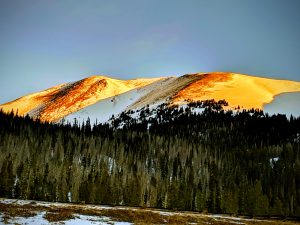
As nightly rentals balloon throughout Colorado so have issues and regulations. Summit County (Breckenridge, Keystone, Copper Mountain) is the most recent county to get on the bandwagon of regulating rentals. Why are the regulations so important that are coming down the pipe? What are the implications on real estate? Why is this “fight” just beginning and what number radically changes the debate.
Nightly Rentals are not a new phenomenon
Nightly rentals didn’t just appear yesterday but for whatever reason the “issues” with nightly rentals seems to be reaching a crescendo in many mountain communities as their usage continues to grow. As nightly rentals grow, the inherent conflicts with homeowners also seems to be growing.
In December 2014 there were approximately 6000 listings throughout Colorado, that number has increased to 36,000 in December 2018, a 6 times increase in only 4 years. This rapid increase has led to a sense of urgency to better regulate nightly rentals.
What is Summit County’s plan?
Summit county has seen their nightly rentals balloon and have proposed the following changes to regulations:
- Permitting system: 150/year
- Limits on occupancy: 2 occupants per bedroom + 2 more occupants/unit or 1 person/300 square feet
- Limitation on parking (location/quantity
- Ability to revoke a permit for up to 2 years for violations
What number has changed the nightly rental discussions?
Remember, the only ones who can vote are full time residents. In Routt County, home to Steamboat, over half the properties are owned by non residents. I would suspect in Summit County that the ratio of full-time residents to non-residents is around 30% full time vs 70% part time/out of area owners. This means the 30% can decide quite a bit about the fate of nightly rentals in the area. The voters elect the city council members who are spearheading the change in regulations.
Many resort markets are changing/have changed substantially
Resort markets have evolved throughout Colorado with many location neutral workers opting to work and live full time in places like Breckenridge, Vail, Steamboat, etc… These location neutral workers are buying homes and working full time jobs. Many don’t want to be surrounded by nightly rentals for various reasons. These are the same faces that are now voting.
This is just the beginning
I do not see the trend of increased regulation slowing down anytime soon. Nightly rentals are way ahead of any regulations in many communities throughout Colorado and cities/counties throughout the state will be playing “catch up” for a while.
For example, the state recently evaluated a proposal to change the zoning of nightly rentals and tax them as commercial properties. The amendment didn’t make it into law, but proposals like this are just the beginning of the changes in store.
How does this impact real estate?
Nightly rentals have soaked up quite a bit of supply in many resort communities. The owners of these properties have become accustomed to the incremental income. Let’s say someone had a house in Breckenridge and rented it every weekend when they weren’t using it. With the regulation changes, this house might not rent for the same amount each night (if the number of occupants is capped) or might not be rentable for short term periods. Many mountain towns are banning short term rentals in certain areas to preserve the character of the neighborhoods and to try to “encourage” longer term rentals.
For example, if regulations go too far in limiting nightly rentals the values of some properties could be reduced. If there is no additional income (or greatly reduced income) on a property a prospective purchaser might not be as apt to buy the property as the numbers would no longer make sense.
Summary
The huge growth in nightly rentals has brought the issue to the forefront in many communities. This trend will continue as cities and counties grapple with the right mix of regulation. Many resort communities will begin setting the trends in regulation as most homes are now investment properties; this gives full time residents much greater sway over policies. This trend will not only continue but accelerate and could have long term impacts on property owners and the value of their real estate.
Top 10 locations for nightly rentals in Colorado (source Airbnb)
- Denver County, 477,100 arrivals
- Summit County, 275,300
- El Paso County, 146,800
- Boulder County, 115,100
- Larimer County, 93,000
- Jefferson County, 89,500
- Grand County, 78,600
- Eagle County, 60,600
- Routt County, 54,600
- Adams County, 52,800
Resources/Additional Reading
- https://www.denverpost.com/2019/01/19/colorado-short-term-rentals-littleton-regulations-airbnb/
- https://www.steamboatpilot.com/news/steamboat-among-top-colorado-destinations-for-airbnb-guests/
- https://www.steamboatpilot.com/news/just-over-half-the-homes-in-city-of-steamboat-springs-owned-by-out-of-towners/
- https://www.parkrecord.com/news/summit-county-split-between-first-and-second-homeowners/
I need your help!
Don’t worry, I’m not asking you to wire money to your long-lost cousin that is going to give you a million dollars if you just send them your bank account! I do need your help though, please like and share our articles on linked in, twitter, facebook, and other social media. I would greatly appreciate it.
Written by Glen Weinberg, COO/ VP Fairview Commercial Lending. Glen has been published as an expert in hard money lending, real estate valuation, financing, and various other real estate topics in the Colorado Real Estate Journal, the CO Biz Magazine, The Denver Post, The Scotsman mortgage broker guide, Mortgage Professional America and various other national publications.
Fairview is the recognized leader in Colorado Hard Money and Colorado private lending focusing on residential investment properties and commercial properties both in Denver and throughout the state. We are the Colorado experts having closed thousands of loans throughout the state.
When you call you will speak directly to the decision makers and get an honest answer quickly. They are recognized in the industry as the leader in hard money lending with no upfront fees or any other games. Learn more about Hard Money Lending through our free Hard Money Guide. To get started on a loan all they need is their simple one page application (no upfront fees or other games)